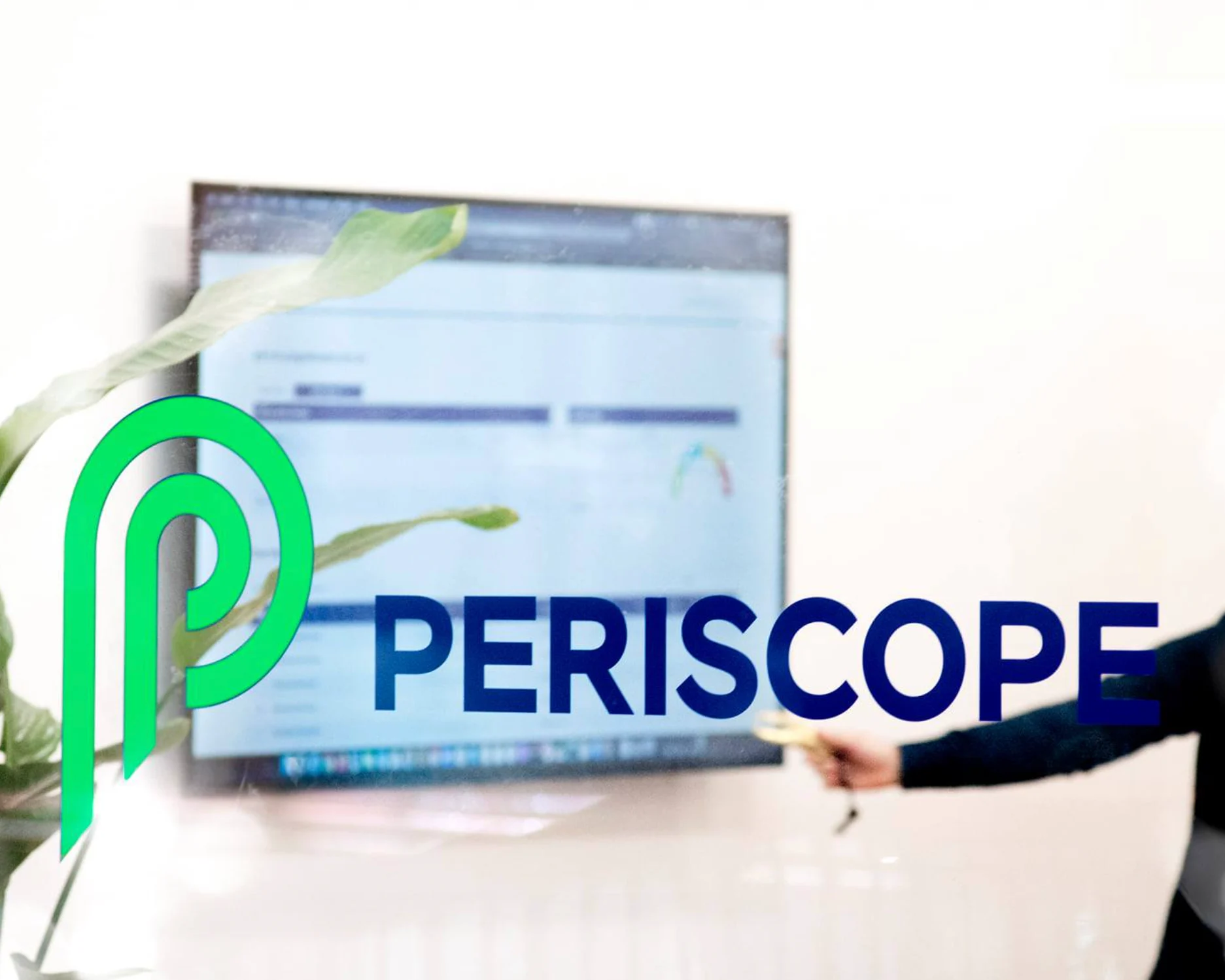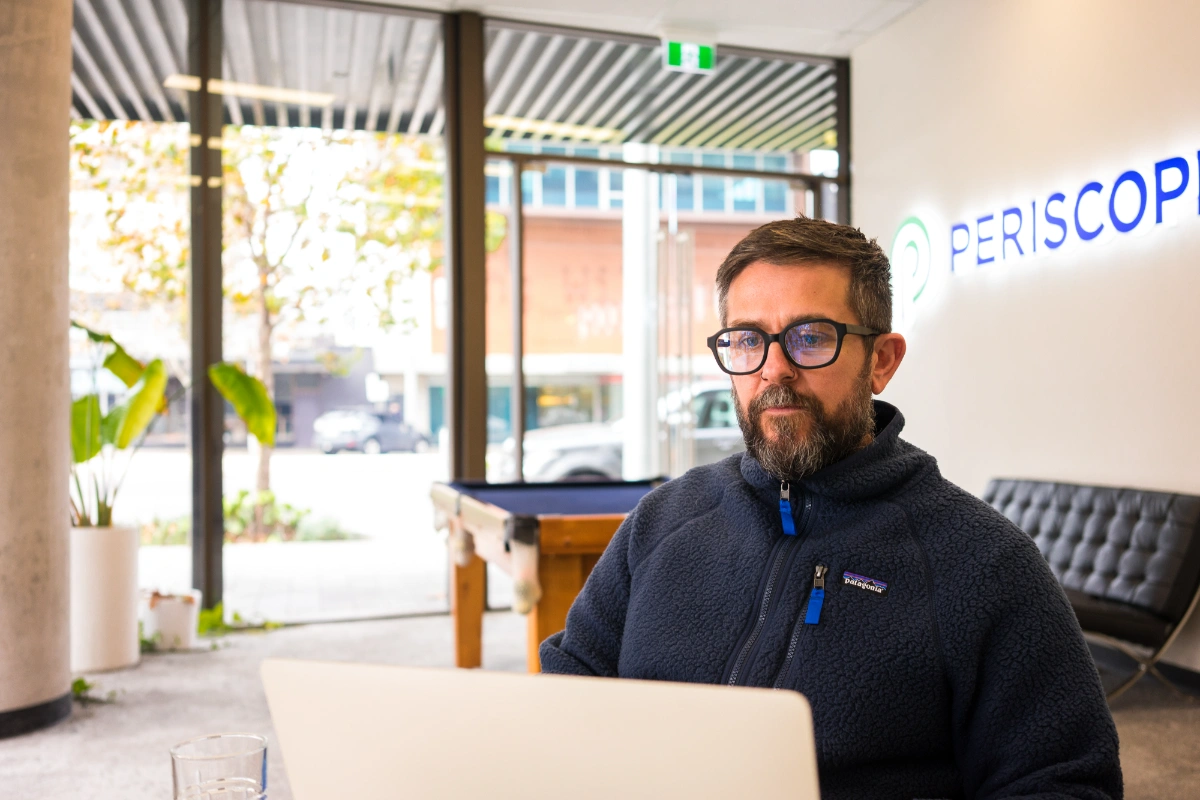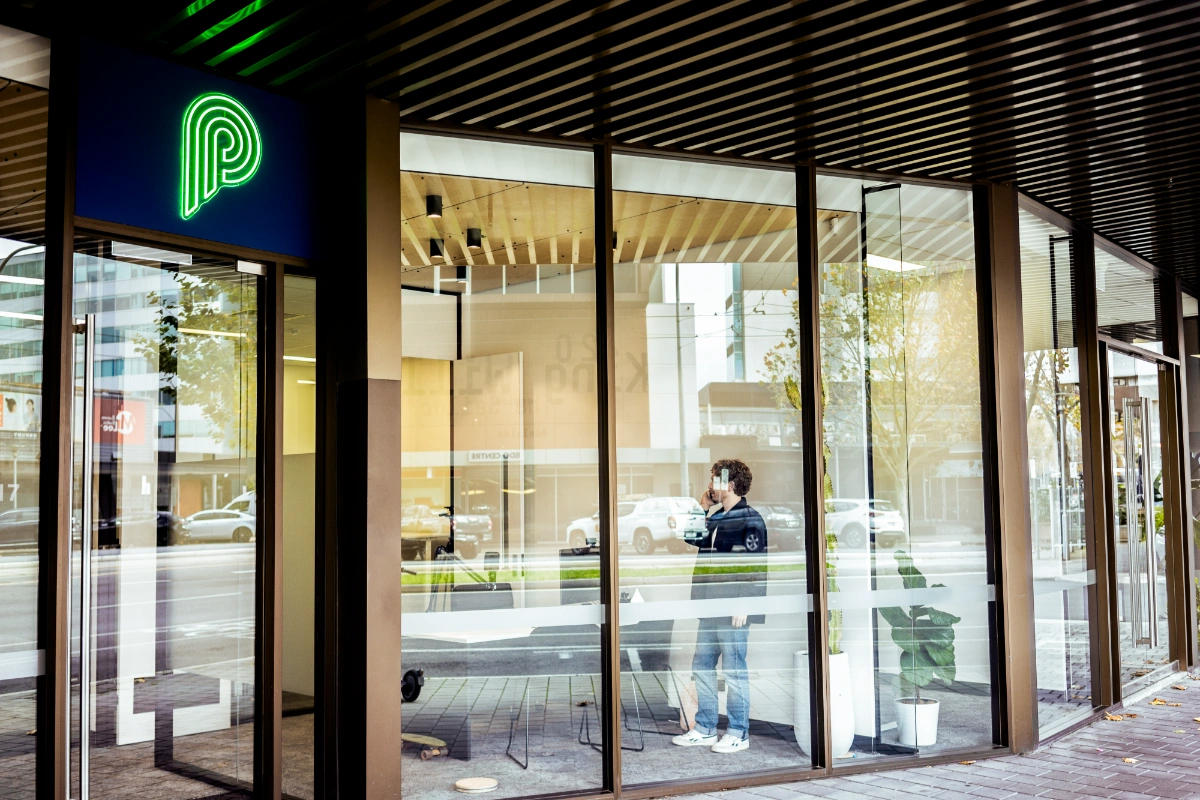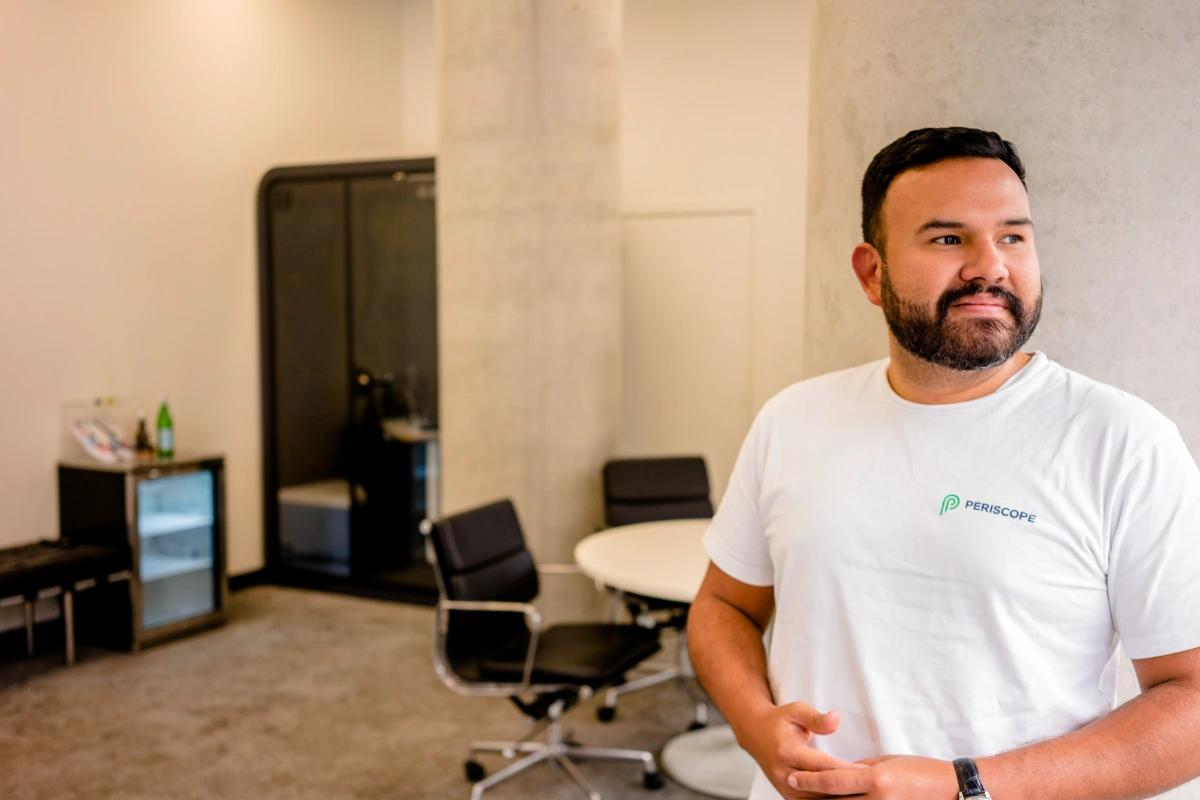One of the digital marketing strategies you need to rank high on search engine results pages (SERPs) and attract a steady stream of organic traffic, is Search Engine Optimisation (SEO). Our digital marketing agency will execute a custom strategy of search engine marketing and content marketing to improve your website’s visibility and ranking on search engines like Google, Bing, and Yahoo.








SEO is important for your online presence. It improves your website’s visibility and rankings in search engines. The higher your website ranks on search engine results pages (SERPs), the more visible it is to potential customers. SEO requires a strategic and long-term plan. It involves different techniques to improve your website’s content, technical aspects, and off-page optimisation. SEO can attract potential customers and establish your brand as a trusted authority in your business niche.
The benefits of a company who specialise in Search Engine Optimisation (SEO) for your business cannot be overstated. SEO improves your website’s visibility on Search Engine Results Pages (SERPs), resulting in increased brand exposure, quality lead generation, and more revenue for your business. Here are some of the benefits of SEO:


By demystifying how search engines work, we can see the significance of having a sound SEO strategy in place. Spectrum Media’s expertise in SEO can help their clients improve their visibility, obtain more qualified traffic and attract more qualified leads, ultimately driving more conversions and sales.
An Overview of Major Search Engines
Search engines have changed how we find information and helped businesses succeed online. At Spectrum Media, we can help your home improvement and contracting business rank well on major search engines.
The digital marketing landscape is diverse, offering a broad range of tools and strategies to boost your contracting business with the same client’s online presence and customer engagement. From optimising your GMB profile, to effective copywriting, understanding and effectively implementing these strategies can drive growth and ensure your business’s sustained success.
Keyword research is identifying and analysing these search queries to determine which are relevant to your business objectives and which have the most potential to drive foot traffic to your site. Several keyword research tools, such as Google Keyword Planner, SEMrush, and Ahrefs, are available.
Once you have identified relevant keywords, you must strategically incorporate them into your website's content. Your website's content needs to answer the questions that potential customers are seeking answers to, using the language and phrases they would use.
In addition to content relevance and keyword usage, user experience is another essential factor in the SEO digital landscape. Your website needs to be user-friendly, easy to navigate, and provide a positive user experience. This includes having fast loading times, clear calls to action, and mobile-optimised design.



As a business owner, you can choose to drive traffic to your website with SEO or PPC. SEO is organic and involves optimising your website to rank higher in search engine results pages. PPC is paid and requires payment for ad space and clicks on search engines, social media platforms, and other websites. There are significant differences between the two methods.
Our SEO services company, has vast experience in both SEO and PPC advertising. We specialise in helping home improvement and contracting clients drive targeted, high-quality traffic to their websites. Contact us today to learn more about how we can help you draw the line and decide between SEO and PPC for your business.
SEO Tools: Keyword Research for Effective SEO
As a website owner, it’s important to understand the importance of using the right keywords in your content to improve your Search Engine Optimisation (SEO) efforts. And the first step to doing that is conducting effective keyword research to identify relevant and profitable keywords for your website.
When to use PPC:
With effective keyword research, our SEO company will be able to optimise your content for the right keywords, driving more traffic to your website and making progress toward your SEO goals.
Will an SEO Services Company unlock the Right Keywords?
When it comes to search engine optimisation (SEO), a custom plan for choosing the right keywords is critical. Keywords are the phrases and words people type into search engines like Google when looking for information, products, or services. By optimising your website for the right keywords, you can help potential customers find you more easily to increase business revenue.
The first step is to research which keywords your target audience is using the most. Google Ads Keyword Planner is an effective tool for keyword research. It allows you to see how frequently people search for specific words and identify other relevant phrases to optimise.
Analyse which keywords your competitors are using by using tools like SEMrush or Ahrefs. This will give you valuable insight into what your competition is doing well and allow you to optimise your website accordingly.
Long-tail keywords are longer and more specific phrases people search for with less frequency. These are easier to rank for and can increase your website's targeted traffic. Brainstorm relevant long-tail keywords with Google's "searches related to" feature or Ubersuggest.
At Spectrum Media, we specialise in SEO for home improvement and contracting clients. By carefully researching and selecting the right keywords, we can help our clients increase their website traffic and reach more potential customers. Choose Spectrum Media for your SEO needs and unlock relevance for your website.



Schedule in a Call and Find Out How We Can Help You!
Whether you are new to digital marketing or simply want to improve your website’s search engine rankings, understanding the jargon in Search Engine Optimisation (SEO) is critical to success. Here is a glossary of the most common terms to help demystify SEO jargon.
Keyword research is the process of identifying popular search terms related to your business and incorporating them into your content strategically. It helps your website rank higher in search engine results when potential customers search for those relevant queries.
On-page SEO refers to optimising individual web pages on your website to improve search engine rankings and drive more organic traffic. It includes optimising titles, heading tags, meta descriptions, and more.
Off-page SEO refers to optimising elements outside of your website, such as backlinks from other websites, social media marketing, and guest posting. It helps to establish your website as an authority and improves search engine rankings.
Domain authority is a search engine ranking score given by Moz that predicts how well a website will rank on search engine result pages (SERP). It takes into account the quality and quantity of external links to your website.
Like domain authority, page authority is also a score Moz gives. However, it measures the likelihood of a single webpage ranking well in search engine results rather than the entire domain.
Backlinks, also known as "inbound links," are links from other websites that lead to your site. Search engines consider backlinks as a sign of your website's credibility and quality.
Anchor text is the visible, clickable text in a hyperlink. SEO best practices dictate that anchor text should be relevant to the page you're linking to rather than generic text.
SERP stands for "Search Engine Results Page". It is the page users see after searching for a term on a search engine. An effective SEO strategy aims to have a website appear on the first page of SERPs.
An SEO audit is a thorough examination of a website to assess its performance in search engine rankings. It identifies areas for improvement to maximise visibility in search engine results.
Robots.txt is a file that webmasters use to instruct search engine bots about which pages on their site should be crawled or not.
Crawling is the process by which search engines discover updated content on the web, such as new sites or pages, changes to existing sites, and dead links.
A canonical tag is an HTML element that helps prevent duplicate content issues by specifying a web page's "canonical" or "preferred" version. It helps search engines understand which version of a page to index.
The meta description is a brief summary of a webpage's content that appears in search engine results. While it doesn't directly impact rankings, a well-written meta description can improve click-through rates.
Alt text, or alternative text, is a description of an image in a webpage that is shown when the image cannot be displayed. It helps search engines understand the content of the image and plays a role in web accessibility.
Black Hat SEO refers to aggressive SEO tactics that violate search engine guidelines and can result in penalties. These include keyword stuffing, hidden text, and using private link networks.
White Hat SEO refers to SEO strategies that comply with search engine guidelines. These tactics aim for a user-friendly website and high-quality content to organically achieve high search engine rankings.
Grey Hat SEO falls between Black Hat and White Hat SEO. It involves tactics not explicitly prohibited by search engine guidelines but still questionable. It includes methods like clickbait and using slightly unrelated keywords.
Organic traffic refers to visitors who find your website by using search engines rather than through paid advertisements. A well-optimised website can attract more organic traffic.
Indexing is the process by which search engines collect, parse, and store data so that it can be retrieved quickly when a search query is made.
Long-tail keywords are longer, more specific search phrases that visitors are more likely to use when they’re closer to making a purchase or when they're using voice search.
Understanding these SEO terms is the first step to demystifying the jargon and working effectively to improve your website’s search engine rankings. By familiarising yourself with this vocabulary, you can more effectively implement your SEO strategies and communicate with other SEO professionals.
At Spectrum Media, our SEO experts specialise in demystifying jargon for our clients and helping them optimise their website’s search engine rankings. Contact us today to start improving your website’s SEO performance.
Establishing SEO Best Practices for Sustainable Success
Search engine optimisation (SEO) is essential for increasing your website’s visibility and driving traffic to your site. However, SEO is a constantly changing landscape, and it can be difficult to keep up with the best practices. Establishing a strong foundation of SEO best practices is critical for sustainable success and achieving your marketing goals.
Technical Optimisation (Off-Page Optimisation)
Technical optimisation is the foundation of your SEO efforts and ensures your website runs smoothly. This includes factors such as website speed, mobile optimisation, crawlability, and security. Google’s Core Web Vitals, which measure website speed, load times, and user experience, have become increasingly important for search engine rankings. Ensure that your website meets the requirements of this metric to provide a positive user experience.
On-Page Optimisation
On-page optimisation refers to optimising individual web pages to rank higher and earn more relevant traffic. This includes optimising for relevant keywords, writing high-quality content, and optimising meta and title tags. It’s essential to conduct thorough keyword research to understand what your potential customers are searching for and to create content that matches their intent.
Creating High-Quality Content: The Heart of SEO
When it comes to Search Engine Optimization, creating high-quality content is one of the most critical components. With search engines heavily emphasizing providing relevant, valuable content to users, crafting pages and blog articles that meet these standards is important.
What Makes Content High-Quality?
First and foremost, it should be worth reading. Content that provides value to readers answers their questions, or addresses their needs will naturally attract more attention. Additionally, high-quality content is well-written, free of errors, and easy to understand.
It’s also important to keep your content fresh and up to date. Regularly updating your website with new content will show search engines that your site is active and valuable to users, which can boost your search engine rankings.
What Types of Content Should I Have?
Search engine optimization (SEO) is essential for increasing your website’s visibility and driving traffic to your site. However, SEO is a constantly changing landscape, and it can be difficult to keep up with the best practices. Establishing a strong foundation of SEO best practices is critical for sustainable success and achieving your marketing goals.
Service Pages Content
Content for service pages is a key component of a successful search engine optimization (SEO) strategy. Service pages are important because they provide information about your business’s services and allow potential customers to find out more details easily. They also help to establish you as an authority in your field, which is vital for improving your rankings in search engine results.
Static Pages Content
Content for static pages is important to a successful search engine optimization (SEO) strategy. Static pages are web pages that remain unchanged and do not change based on user input or other variables. When creating content for static pages, it’s important to remember you’re writing content for users as well as search engine robots.
Blog Posts Content
Blog posts are a great way to boost your website’s content in search results. Writing blog posts with original content that are optimized for search engines can help draw more visitors to your website, which in turn may result in higher rankings on Google and other popular search engines.
At Periscope Media, we prioritize creating high-quality content for our clients. By taking a strategic approach and focusing on value and relevance, we help our home improvement and contracting clients rank higher, drive more organic traffic, and, ultimately, generate more leads and conversions.
Mastering Site Structure: Internal Links and Navigation
Internal linking and navigation are important for Search Engine Optimization. They help search engines crawl your site and pass authority and relevance between pages. Links in your main navigation or content are more valuable than those in the footer or sidebar. Links should be relevant and use descriptive anchor text. Your website’s navigation should be easy to use and show the hierarchy of your pages. Periscope Media specializes in SEO for home improvement and contracting clients and can help optimize your site’s structure for improved rankings and user experience.
Beyond Your Site: Organic Links and Guest Posting
Organic links are when another website points from their website to yours without your request or involvement and are a strong signal to search engines that your content is respected and relevant. Also, providing valuable traffic from search engines, guest posting is an effective strategy for getting external links. It involves creating content for other websites in your industry and including links back to your site. This earns you external links and establishes your business as a thought leader. Link building can also be earned through networking, participating in online forums, and creating shareable content.
Optimizing for Visibility: Title Tags and Meta Descriptions
Optimizing your website is important for online marketing success. Title tags and meta descriptions are crucial for on-page SEO. Title tags should accurately describe the content with relevant keywords and be under 70 characters. Meta descriptions should briefly summarize relevant keywords and a call to action under 155 characters. Periscope Media can help optimize title tags and meta descriptions for increased visibility and click-through rates. Benefits include more potential customers for your business. Contact us for SEO services to help your business succeed online.
Optimising for Visibility: Title Tags and Meta Descriptions
Slow website loading times can turn potential customers away, affecting search engine rankings and user experience. A Google study found that 53% of mobile users leave a site that takes three seconds or longer to load. At Periscope Media, we optimise loading times by reducing image sizes, compressing code, and minimising plugin use. Faster loading times improve user experience, leading to longer site visits and potential customer conversions.
Here are some steps we take to improve website loading times:
The Need for Speed: Website Loading Times and User Experience
Slow website loading times can turn potential customers away, affecting search engine rankings and user experience. A Google study found that 53% of mobile users leave a site that takes three seconds or longer to load. At Periscope Media, we optimize loading times by reducing image sizes, compressing code, and minimizing plugin use. Faster loading times improve user experience, leading to longer site visits and potential customer conversions.
Here are some steps we take to improve website loading times:
Optimize Images:
High-quality images are essential for any website but can also slow down loading times. We optimize images by compressing file sizes and reducing image dimensions while maintaining visual quality.
Minimize HTTP Requests:
Each element on a website requires an HTTP request, which can slow loading times. We reduce HTTP requests by consolidating CSS, JavaScript, and image files.
Utilize Browser Caching:
When a user revisits a website, their browser can store cached versions of the website. We leverage browser caching to reduce loading times for returning users.
Periscope Media is dedicated to helping our clients enhance their website’s loading times and deliver a positive user experience. With faster loading times, your website can rank higher in search engine results and attract potential customers. Contact us today to learn more about our search engine optimization services.
Diving Deeper into Technical SEO
You need to focus on technical SEO to optimize your website for search engines. This refers to the behind-the-scenes elements that impact your website’s visibility and ranking. At Periscope Media, we know technical SEO matters for home improvement and contracting clients. We consider important technical SEO elements when optimizing our clients’ websites.
Here are some steps we take to improve website loading times:
Site Structure:
The structure of your website is a crucial factor in how search engines index and understand its content. A clear and organized site structure can help search engine crawlers navigate your website more easily and improve your overall search engine rankings.
Schema Markup:
Schema markup is a code added to your website that helps search engines understand the content of your pages better.
Broken Links:
Broken links can negatively impact your website’s user experience and search engine rankings. We periodically identify and fix broken links, ensuring users and search engine crawlers can navigate your website efficiently.
We improve website visibility and ranking on search engines through technical SEO. Our expertise is in optimizing technical SEO for home improvement and contracting businesses. Contact us to learn more.
Fine-tuning Your Strategy: Content Optimization Techniques
To improve your search engine rankings and bring more traffic to your website, you need a tailored SEO strategy. Analyzing data and making adjustments is an ongoing process, but it’s worth it. Content optimization is key. It makes your website’s content more visible and user-friendly for search engines and potential customers.
Here are a few ways to optimize your website’s content:
Conduct keyword research:
Use keyword research tools to identify relevant keywords and phrases that potential customers are searching for. This will help you incorporate those keywords into your website’s content and improve your chances of ranking higher in search engine results for those terms.
Focus on high-quality content:
It’s not enough to simply incorporate keywords into your content. You also need to ensure your content is high-quality, informative and engaging for your target audience. This can help improve your website’s user experience, which is a critical factor in search engine rankings.
Optimize title tags and meta descriptions:
These elements help give search engines an idea of what your content is about. By optimizing them with relevant keywords and information, you can make your content more visible and compelling to potential customers who are searching online.
Employing these content optimization techniques can help fine-tune your SEO strategy and improve your search engine rankings over time. At Periscope Media, we specialize in helping home improvement and contracting businesses develop effective SEO strategies that drive results.
Expanding Your Reach: Off-Site Optimisation Strategies
Off-site optimisation is a crucial aspect of most SEO case studies. It involves actions taken outside your own website to impact your search engine rankings. By focusing on off-page SEO, you can significantly improve the visibility and traffic of your website. Here are a few off-site optimisation strategies that can help you expand your reach:
Build high-quality backlinks:
Backlinks from reputable websites can boost your credibility and improve search rankings. Periscope Media has experience building high-quality backlinks for home improvement clients.
Guest posting:
Guest posting: Guest posting means writing for another website and including a link to yours. Periscope Media can help you find good sites and make content people like.
Utilise social media:
Utilise social media: Use social media to promote your website and attract more customers. Periscope Media can help create campaigns for your audience and goals.
Off-site optimisation is an essential part of any successful SEO strategy. Working with Spectrum Media can help you implement the most effective off-page SEO techniques and reach your ideal customers.
Understanding Google Algorithm Updates and SEO
Google Algorithm Updates impact search engine rankings and traffic. They aim to improve the search experience. These updates change the algorithm to provide more relevant search results. Updates have become sophisticated to eliminate poor quality or keyword-stuffed content. Stay current with the latest updates to keep your website up-to-date..
Here are a few tips on how to stay informed about Google’s Algorithm Updates and maintain a strong SEO strategy:
Keep Track of the Updates:
Google announces major algorithm updates, so be sure to check Google’s official blog for the latest update information.
Perform Regular Site Audits:
Regular site audits can help you identify issues such as broken links, duplicate content, or bad formatting on your website as soon as they arise.
Keep Your Content Fresh:
Make sure to update your website content regularly, focusing on quality content with relevant keywords that add value and relevance for users.
Use Analytics Tools:
Analytics tools like Google Search Console can provide valuable insight into site traffic, page speed, and site issues that could impact your site’s search ranking.
Stay White Hat:
Periscope Media recommends sticking to ethical and white hat SEO strategies to ensure that search engines like Google view your website positively and that your website and content are authoritative and trustworthy.
Understanding Google Algorithm Updates is essential to maintaining a healthy and competitive online presence. By staying up-to-date, performing regular site audits, prioritizing high-quality content, and keeping your strategies ethical, you can stay ahead of the game and maintain a strong SEO strategy for your website.
Monitoring SEO Performance: Tools and Techniques
Once you have implemented your SEO strategy, it is important to monitor your website’s performance regularly to ensure that it achieves your desired search engine rankings and drives organic traffic.
.
Use Google Analytics:
Use Google Analytics to monitor website performance and track metrics like traffic, bounce rate, and engagement. Identify areas for improvement and adjust SEO strategy accordingly.
Track Your Keyword Rankings:
To track SEO performance, it’s important to monitor your website’s keyword rankings. Tools like Ahrefs and SEMrush can help you do this. Use these tools to track keyword rankings for our clients and adjust their SEO strategy accordingly to improve their website’s search engine rankings.
Check for Broken Links:
Broken links hurt SEO. They slow page load times and frustrate users. Fix them regularly for peak website performance. Utilize tools like Screaming Frog to identify and fix broken links on our clients’ websites, ensuring a positive user experience for potential customers.
By utilizing these tools and techniques to monitor SEO performance, you can ensure that your website is achieving its full potential in search engine rankings and driving organic traffic to your home improvement or contracting business. Periscope Media is here to help and guide you every step of the way.
SEO is Ongoing: Embracing the SEO Journey
SEO is not a one-time fix for your website. It needs regular updates and adjustments to keep up with changes. We provide quality, long-term solutions. We add the best words people use to find what you offer to your site. We use on-page and off-page techniques to improve rankings. We optimize technical aspects and build high-quality backlinks. We track website traffic and user behavior using Google tools. We adjust strategies for success..
By embracing the SEO journey, you can improve your website’s search engine rankings, attract organic traffic, and reach more potential customers. Let Periscope Media guide you on this journey and help you achieve your SEO goals..
Why Choose Periscope Media as Your SEO Partner?
We understand your business:
With years of industry experience and a strong track record of success, Periscope Media is uniquely positioned to help home improvement and contracting businesses improve their search engine rankings. We understand these businesses’ unique challenges and can tailor our contractor SEO strategies to fit your specific needs.
We use ethical, white-hat SEO tactics:
We believe in doing things the right way. That’s why we use only ethical, white-hat SEO tactics that comply with search engine guidelines. This means that our strategies are designed to produce long-term, sustainable results that won’t put your website at risk of being penalized or banned.
We provide transparent reporting:
WAt Periscope Media, we believe in transparency. That’s why we provide regular reporting on the progress of your SEO campaign. You’ll always know exactly how your website is performing and what we’re doing to improve its search engine rankings.
We stay up-to-date with the latest SEO trends:
Search engine algorithms are constantly changing, and what worked yesterday may not work today. That’s why partnering with an SEO agency that stays current with the latest industry trends is important. At Periscope Media, we’re always on the cutting edge of SEO techniques and strategies, so you can rest assured that your website is in good hands.
We’re dedicated to your success:
At the end of the day, our goal is simple: to help your home improvement or contracting business succeed online. We’re passionate about what we do and committed to delivering results that exceed your expectations. When you partner with Periscope Media for your SEO needs, you can trust that you’re working with a team that truly cares about your success.
Spectrum Media specialises in SEO for home improvement and contracting clients. We help your website rank higher on search engine results pages, driving organic traffic and generating leads and sales. Contact us through our form or call us to start your SEO journey. We offer tailor-made strategies to meet your business needs and goals. We’ll schedule a consultation to discuss your business, target audience and objectives. Then, we’ll conduct a comprehensive SEO audit of your website, identify areas that need improvement and create a customised strategy to drive organic traffic. We’re transparent and committed to providing exceptional service.

Digital Strategist